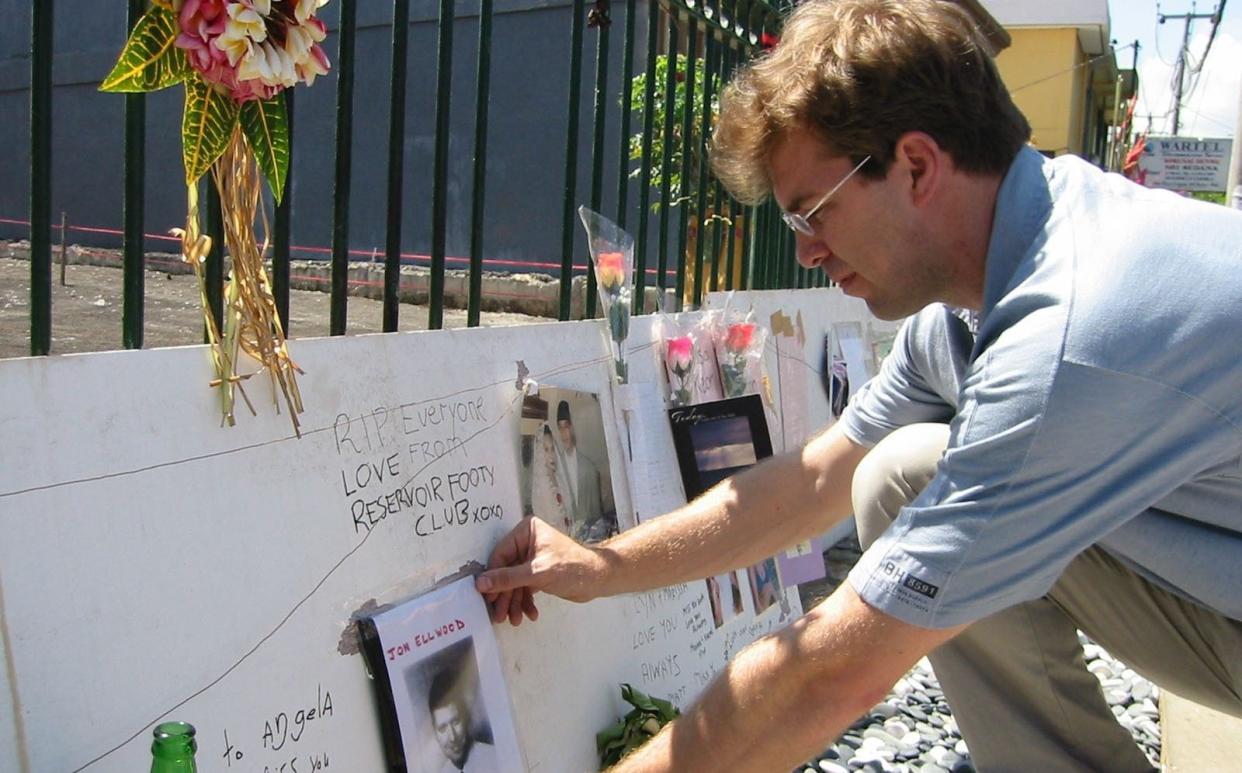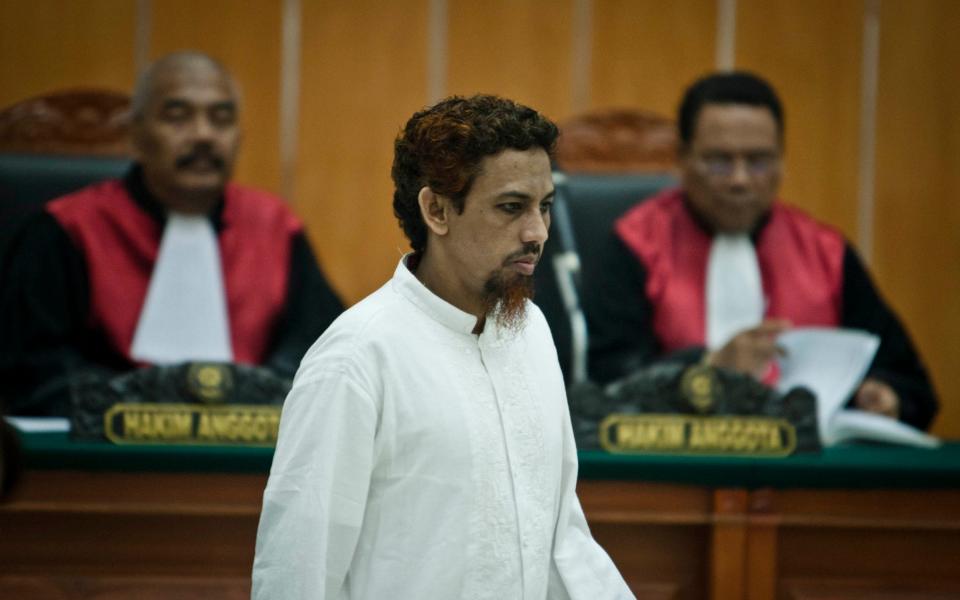Keep Bali bomber in prison, urges Tobias Ellwood whose brother died in 2002 blast

A Conservative MP whose brother was killed in the 2002 Bali bombings has urged Indonesia to not go ahead with the early release of one of the terrorists behind the attack.
Tobias Ellwood, who lost his 39-year-old sibling Jon in the attack, issued an impassioned plea after authorities commuted the sentence of Umar Patek, who could now be freed within days.
Patek helped create the explosives used in the atrocity which killed 202 people, including 28 Britons, at two Bali nightclubs in October 2002.
However, he is now eligible for parole after serving only half of his 20-year sentence and could be released from Porong Prison in East Java province this month. His release would come just before the 20-year anniversary of the attack.
Indonesia often grants sentence reductions to prisoners on the nation’s Independence Day, which was on Wednesday. Patek was granted a five-month reduction as part of this tradition.
Mr Ellwood, the chair of the Commons defence committee, said he was shocked that a convicted terrorist may soon be walking the streets.


Mr Ellwood told The Telegraph: “I find this an astonishing and galling decision by Indonesia as bereaved families very soon mark exactly 20 years since the bombs he helped make took the innocent lives of over 200 loved ones in Bali.
“No responsible state, committed to tackling terrorism, would allow a jihadi bombmaker, responsible for such a large-scale loss of human life to be released early.
“I strongly urge the Indonesian president to intervene and keep Patek behind bars.”
Patek was a member of the militant group Jemaah Islamiyah, which has links to al-Qaeda. He was so adept at making explosives that he was dubbed “Demolition Man”.
The terrorist went on the run after the Bali bombings and was eventually captured in Pakistan in 2011, in the same town where Osama bin Laden was killed the same year. He was extradited to Indonesia where he went on trial in Jakarta.
He was found guilty of murder and bomb-making, and sentenced to 20 years in 2012.
Patek was also convicted for his role in a series of church bombings in Jakarta two years before the Bali bombings, in which 19 people were killed.
He was spared the death penalty as he apologised to the victims’ families and co-operated with the authorities.


Indonesian authorities said Patek had “behaved very well” while serving his sentence and “regrets his radical past”. They said his case fulfils the legal requirements for sentence reduction.
Patek has been granted a series of reductions to his sentence since his conviction. The latest five-month reduction means he has now technically served two-thirds of his 20-year sentence. This made him eligible for parole on August 14.
If parole is refused, he could remain in prison until 2029. The decision of whether to grant him parole has not yet been made.

 Yahoo Movies
Yahoo Movies 
